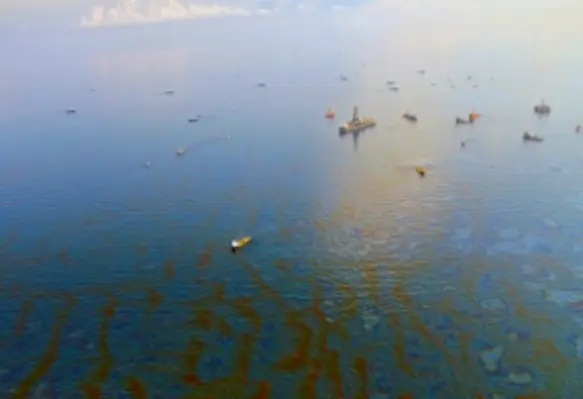A research team led by scientist Justin Chalker, senior lecturer in Synthetic Chemistry at Flinders University, has come up with an absorbent polymer to soak up oil from spills
The substance, made from waste products from the petroleum and refining industries, is capable of cleaning up crude oil and diesel spills.
The team of researchers used canola oil from cooking, sulphur and sodium chloride to make the material.
Since the polymer, made from sulphur and cooking oil, has an affinity for hydrocarbons such as crude oil and diesel fuel, it can rapidly remove them from seawater.
According to a blog post on Flinders University’s website, lab tests showed the polymer’s ability to absorb the oil and diesel from water within a minute of the solution being sprinkled.
The research is supported by the Australian Government National Environmental Science Program (NESP), Australian Research Council (ARC), Royal Australian Chemical Institute, Australian Microscopy and Microanalysis Research Facility, Australian National Fabrication Facility, FCT Portugal, The Royal Society, Engineering and Physical Sciences Research Council and European Research Council.
Moreover, the polymer can also be squeezed to recover the oil absorbed and reused.
“This is an entirely new and environmentally beneficial application for polymers made from sulphur.This application can consume excess waste sulfur that is stockpiled around the globe and may help mitigate the perennial problem of oil spills in aquatic environments,” said Chalker.
About 7000 tons of crude oil spilt into oceans from tankers in 2017, according to the International Tanker Owners Pollution Federation.
Oil spills gained worldwide attention after an explosion at BP’s Deepwater Horizon offshore rig spilt about 4.9mmbbl of crude oil into the Gulf of Mexico.
Developing economies in Asia and particularly Africa, which have seen a string of large deepwater finds, could make use of the polymer to curtail environmental damage in the event of an oil spill.
“This is a new class of oil sorbents that is low-cost, scalable, and enables the efficient removal and recovery of oil from water,” Chalker added.
The team’s research is published in the new paper, Sustainable Polysulfides for Oil Spill Remediation: Repurposing Industrial Waste for Environmental Benefit, published in Advanced Sustainable Systems (Wiley) by Flinders and other researchers.







